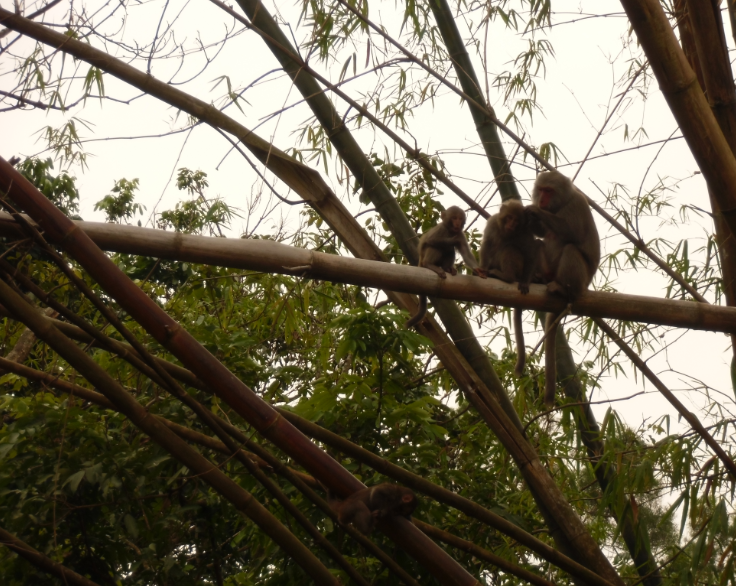| Formosan macaques (Formosan Rock Monkey) |
|---|


|
|
The Formosan macaque is also called the black limb monkey. Scientific name: Macaca cyclopis (cyclopis means round, and the whole name means “round head macaque”) English name: Formosan macaque or Formosan rock-monkey. It is an endemic species in Taiwan, and is a rare and valuable wild animal. It is a type of monkey belonging to the ancient world. Besides humans, they were the only primates living in Taiwan. Rock-monkey means that they like to exercise on rocks. There are many rocks built for the Formosan macaque area in Taipei Zoo. These were done in consideration of their habits.
Bodily form: Adult males (height 45~65 cm, and weight 6~12 kg) are a little bigger than females (35~55 cm, 5~8 kg). Some adult males even reach 15 kg or above. Males have a couple of long and sharp canine teeth on both the upper and lower jaw, but females do not. Formosan macaques have flat faces, small ears, and thick and long tails with lots of hair. The tail is about two third of their body length, does not have the ability of grabbing or supporting, and is used for keeping their balance in moving and doing their action language. Their body hair is thick and soft, and is majorly brown color. The colors of the back of the tail and at the end of four limbs are close to black. Also, by observation we found out that Formosan macaques eat very fast, since there is a pouch between their cheek and neck, they quickly fill food into the cheek pouch while eating, and then slowly chew the food after they are in a safer place. The skin the females’ hip and the tail closing to the hip for will swell and turn red during the mating season, and the anus area of males will turn red too. These are the rutting symbols. Formosan macaques live in the forests or bare rocks from sea level to altitude 3,000 meters. Ershui Township abounds in the gifts of nature, so people can see Formosan macaques in the mountaineering pathway in altitude 100-200 meters. You are welcome to Ershui Township to watch Formosan macaques. |


|